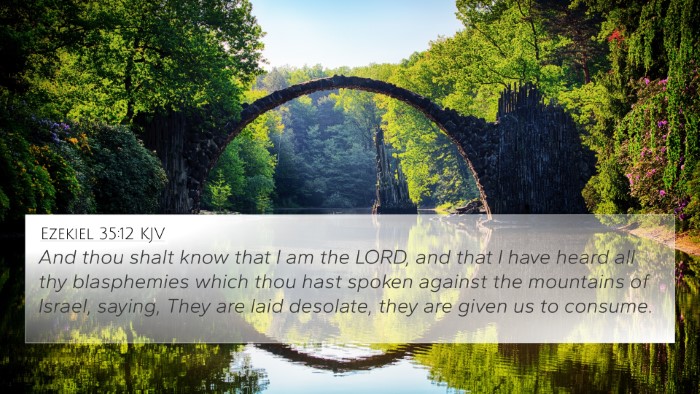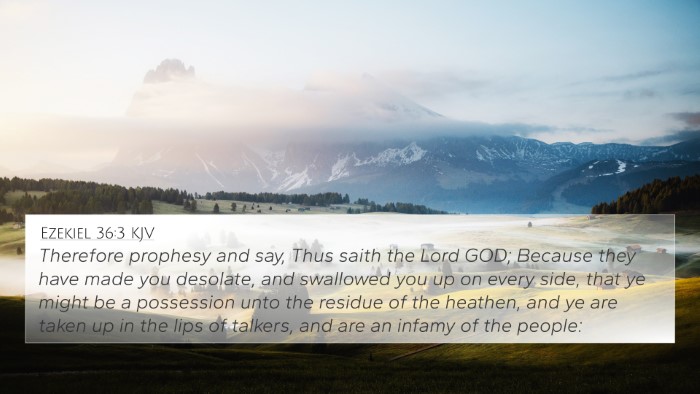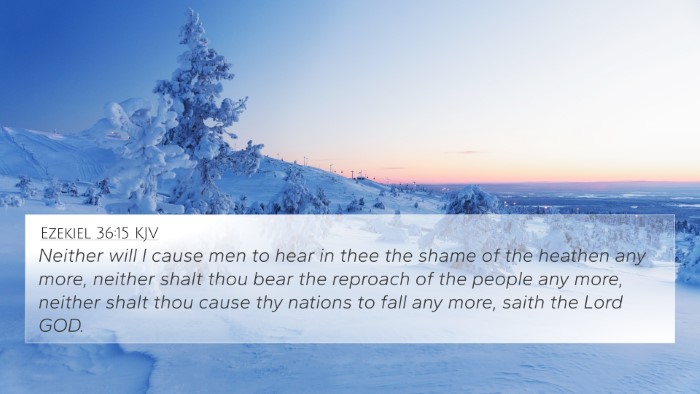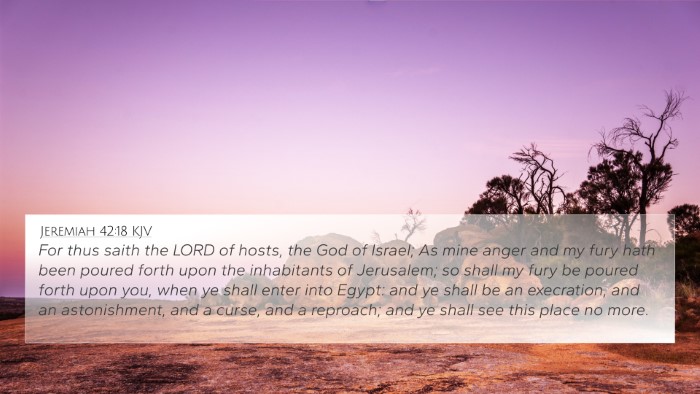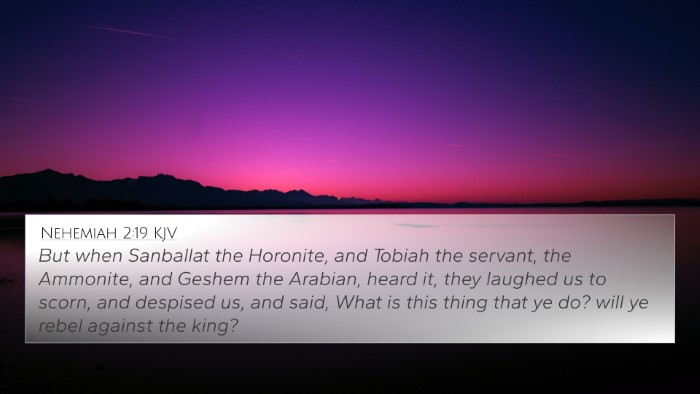Understanding Psalms 79:4
Psalms 79:4 reads, "We have become a reproach to our neighbors, a scorn and derision to those around us." This verse is a poignant expression of the grief and humiliation felt by the people of Israel in the face of their adversaries. It embodies the themes of suffering, social shame, and the deep sense of loss that afflicts the community. In drawing from public domain commentaries, we can explore its multifaceted meanings and the related biblical principles.
Contextual Overview
This Psalm is attributed to Asaph and serves as a communal lament, reflecting on the dire state of Israel after experiencing invasion and destruction. The verse serves as a poignant reminder of the nation's shame and how it has affected their relationship with God and with others.
Insights from Commentaries
Matthew Henry's Commentary
Matthew Henry emphasizes the collective grief of the Israelites, noting that their state as "a reproach to our neighbors" signifies a spiritual and social degradation. He elaborates on the idea that such shame stems from turning away from God, leading to vulnerability against oppressors. Henry points out the importance of accountability and the need for repentance as essential steps towards restoration.
Albert Barnes' Notes
Albert Barnes interprets the "scorn and derision" mentioned in the verse as a reflection of the people's devastation and dishonor. Barnes highlights the communal aspect of this suffering, suggesting that the shame felt by the Israelite people was not merely their own but rather a broader humiliation that affected their entire identity as a chosen people. He mentions the implications this has on their witness to the nations around them.
Adam Clarke's Commentary
Adam Clarke offers a historical perspective, suggesting that the surrounding nations exploited Israel's misfortunes, leading them to ridicule. Clarke points out that this verse serves as a profound acknowledgment of Israel’s plight and calls for divine intervention. His examination underscores the necessity for communities to support each other in times of crisis, drawing strength from unity and faith.
Theological Significance
The lament found in Psalms 79:4 reflects a broader theological narrative. It serves as a reminder of the covenant relationship between God and Israel and illustrates how disobedience can lead to communal disgrace. This verse compels the reader to consider the profound effects of sin and alienation from God, prompting reflection on repentance and restoration.
Cross-References to Psalms 79:4
- Psalms 44:13-14: "You make us a byword among the nations." This parallels the reproach described in Psalm 79:4.
- Psalms 89:38-39: Reflects on God’s rejection of His anointed and the accompanying shame.
- Lamentations 3:30-33: Discusses enduring reproach as part of collective suffering.
- Isaiah 53:3: Describes the Servant, a figure who is scorned by men, echoing the themes of derision.
- Jeremiah 20:8: Jeremiah experiences mockery in his prophetic mission, showing individual suffering that resonates with communal pain.
- Ezekiel 36:23: Highlights God's desire to sanctify His name among the nations, restoring honor to His people.
- Romans 2:24: Nodes how God's name is blasphemed among the Gentiles due to the actions of His people.
- Psalms 69:7: "Because for Your sake I have borne reproach." This verse shares the sentiment of suffering for God's glory.
- 1 Peter 4:14: Encourages believers that reproach for the name of Christ is a mark of blessing.
- Matthew 5:11-12: Jesus speaks about being reviled and persecuted for righteousness, highlighting God's perspective on suffering.
Connecting the Themes
The interconnectedness of these passages demonstrates a thematic thread through the entire Bible, revealing how God's people have consistently faced ridicule, yet remain called to faithfulness and restoration. Exploring the connections between these verses offers insights into the challenges of living out one's faith in a hostile world, while also affirming the overarching promise of God's restoration.
Conclusion
Psalms 79:4 encapsulates the communal anguish of Israel and serves to guide us in understanding our own struggles against shame and derision. It reminds us of the need for collective repentance and highlights the importance of remaining steadfast in faith despite external pressures. By engaging with this Psalm deeply and utilizing resources for Bible cross-referencing, readers can enrich their understanding of scriptural themes and their applications in life today.
Tools for Further Study
For those interested in a more profound study on cross-referencing biblical texts, it is crucial to utilize tools such as:
- Bible concordance: To find specific verses and their corresponding connections.
- Bible cross-reference guide: Aids in exploring thematic links.
- Comprehensive Bible cross-reference materials: For deeper and broader study.
- Cross-reference Bible study: Facilitates organized reading plans.
- Bible chain references: Connecting verses to create a path of understanding.
- How to use Bible cross-references: Offering methodologies for study.
Engaging in comparative Bible verse analysis and exploring thematic Bible verse connections can enhance your spiritual journey. As you dive deeper into the Scriptures, always seek to understand the connections and context behind each verse.





